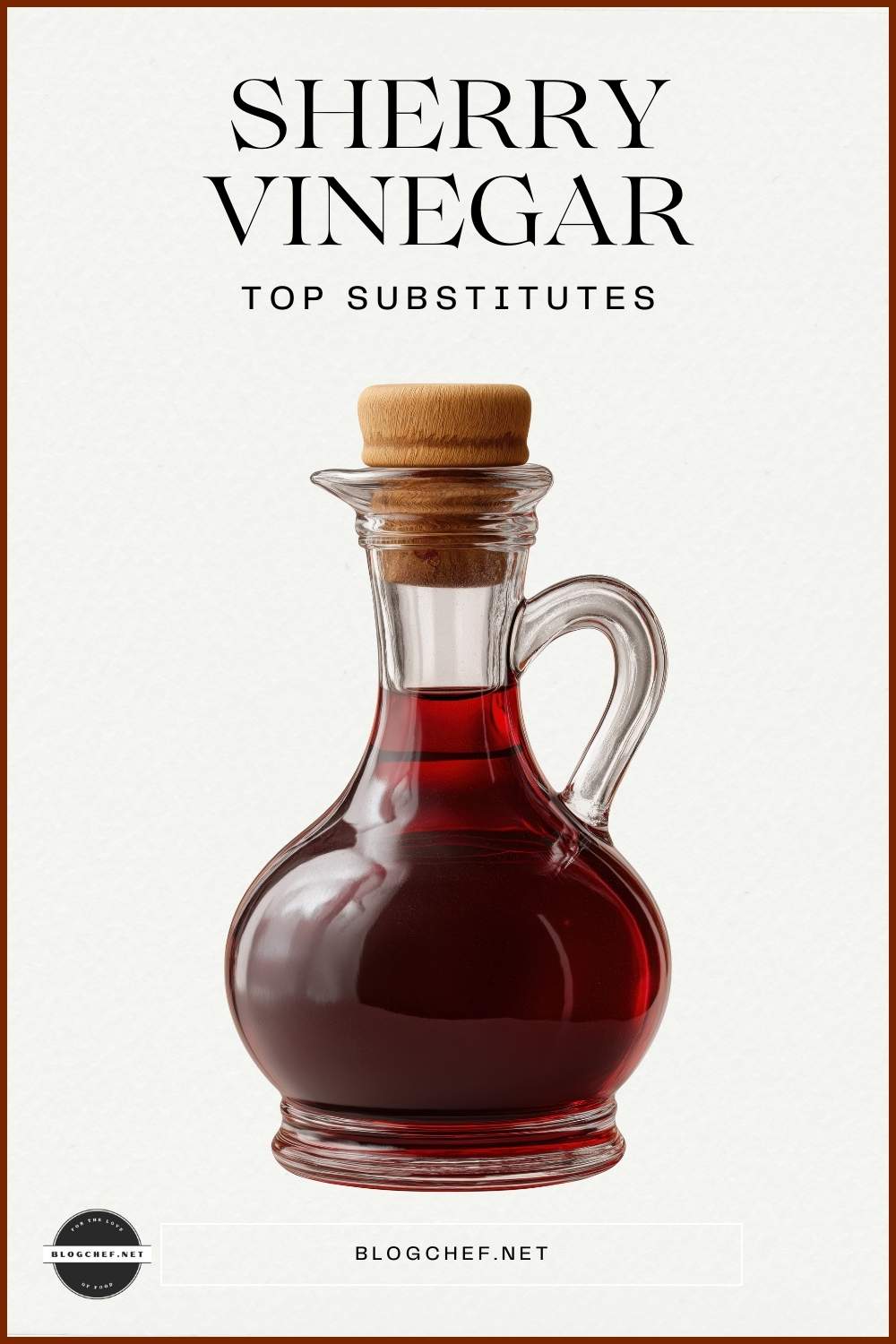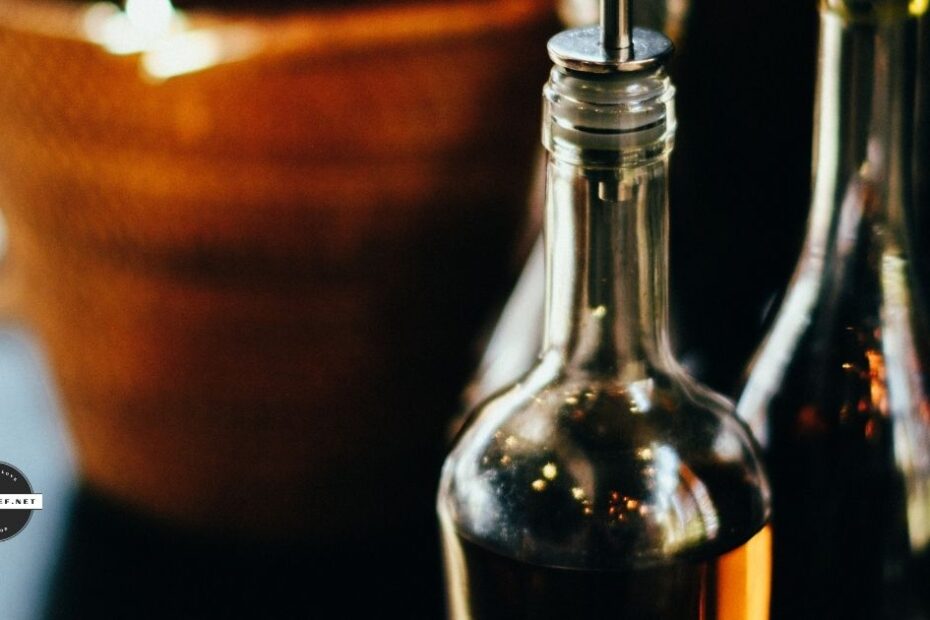Sherry vinegar, aka sherry wine vinegar, is an ingredient made from Spanish sherry wine. It is aged in oak barrels and delivers a balanced but complex flavor with sweet and nutty notes. This flavor profile shines in savory dishes: pan sauces, roasted vegetables, meat marinades, and — of course — Spanish and Mediterranean dishes.
If you don’t have sherry vinegar on hand, other wine-based vinegars can stand in — but the best choice depends on what you’re making. Read on for the details.
You may also want to see our guide to vinegar uses and substitutions.

The best sherry vinegar substitute: Red wine vinegar
Red wine vinegar is a solid, all-purpose replacement for sherry vinegar, thanks to its acidity level and wine-forward flavor. You can use this substitution in recipes for salad dressings, sauces, marinades, and sauteed vegetables. Substitute 1-for-1 and then taste. You may need to add a pinch of sugar to replicate the sweetness of sherry vinegar.
Read next: What can I substitute for red wine vinegar?
For lighter dishes: White wine vinegar
White wine vinegar is another good substitution for sherry vinegar, though it has a lighter flavor. Use this option when you’re making lighter vinaigrettes or chicken or fish dishes.
As with the red wine vinegar substitution, you’ll use a 1:1 ratio and then add a bit of sugar if the dish needs to be sweeter.
For salads: Champagne vinegar
Champagne vinegar is mild and sweet, so it can replace sherry vinegar in delicate sauces, salad dressings, and pan deglazing applications. You probably won’t need to add sugar, but substitute it on a 1:1 ratio and adjust to taste.
For marinades: Apple cider vinegar
Apple cider vinegar has a punchier, fruitier flavor than sherry vinegar, but it does work as a substitution in marinades and cooked dishes. Start by substituting on a 1:1 ratio and then taste. If the dish feels too sharp, add a bit of sugar for balance.
Read next: How to make apple cider vinegar taste good
For braises: Diluted balsamic vinegar
Balsamic vinegar has a richer flavor and darker color than sherry vinegar, so you should be careful where you use it as a substitute. Cooked sauces and braises work best and you’ll want to dilute the balsamic with water. Start with ½ tablespoon water plus ½ tablespoon balsamic for each tablespoon of sherry vinegar needed.
Note that if you have white balsamic vinegar on hand – admittedly, a less common ingredient – you can use that in place of sherry vinegar without dilution. White balsamic is less sharp than sherry vinegar, so you’ll get a smoother-tasting dish.
Sherry vinegar substitutes to avoid
Distilled white vinegar and rice vinegar do not work well in place of sherry vinegar. The white vinegar is too harsh, while rice vinegar is probably too mild.
Recipes that feature sherry vinegar
Gazpacho
Many traditional gazpacho recipes rely on sherry vinegar for its clean acidity and subtle sweetness.
Pan sauces for steak or chicken
Sherry vinegar is commonly used to deglaze the pan after searing meat, creating a flavorful sauce.
Roasted vegetables
It’s frequently drizzled over roasted mushrooms, Brussels sprouts, carrots, or asparagus to add brightness without overpowering the vegetables.
Vinaigrettes
Sherry vinegar vinaigrette is a classic dressing for mixed greens, spinach salads, and salads with nuts, cheese, or roasted vegetables.
Braised dishes
A splash of sherry vinegar is often added to braised meats or lentils near the end of cooking to lift and balance rich flavors.
Tapas dishes
Many Spanish tapas — such as sautéed mushrooms, marinated vegetables, or seafood — use sherry vinegar for finishing.
Spanish garlic shrimp
Sherry vinegar is often added at the end to balance the richness of olive oil and garlic and brighten the shrimp.
Romesco sauce
This classic Spanish sauce made with roasted peppers, nuts, garlic, and olive oil often uses sherry vinegar for acidity and depth.
BlogChef takeaway
Sherry vinegar is prized for its balanced acidity and subtle sweetness, so the best substitutes are other wine vinegars. Red wine vinegar is usually your safest swap, with small adjustments if needed.
